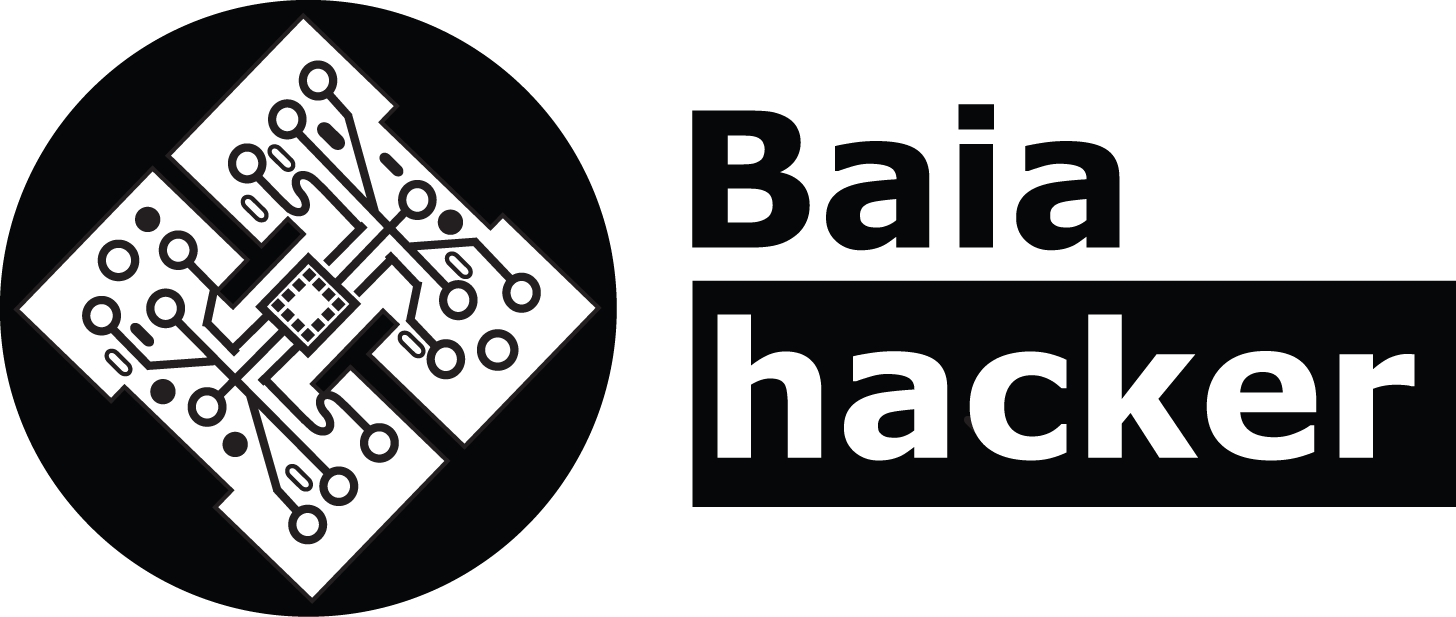Baia Hacker
| Baia Hacker | |
|---|---|

| |
| Status | reformatting |
| Country | Brazil |
| State or District | São Paulo |
| City | Itu |
| Date of founding | 2015/01/21 |
| Last Updated | 2022-07-03 |
| Website | https://baiahacker.space/ |
| Wiki | http://wiki.aguas.ml/ |
| https://www.facebook.com/baiahacker | |
| https://www.twitter.com/baiahacker | |
| contato@baiahacker.space | |
| Snail mail |
|
| Number of members | 50 |
| Membership fee | Free or donations of $5 or $15 or $30, you can choose. We work a lot with crossfunding jobs. |
| Size of rooms | 200 m² |
| Members | |
| Open to Exchanges? | yes |
| Open to Residencies? | yes, in rural area"yes, in rural area" is not in the list (yes, no, maybe) of allowed values for the "Residencies" property. |
| Residencies Contact | contato@baiahacker.space |
| Location | 23° 15' 22.56" S, 47° 18' 20.53" W |
|
| |
ஃ Bringing technology from ancestral to high-tech everywhere we touch ஃ
Welcome to Baia Hacker Space
We are people living a convergence hub orchestrated in a temporary laboratory of sensitive experiences.
Baia Hacker is a hackerspace, a shared space where technology meets nature for common experiences. It is a place where you can practice or enjoy emerging technologies, discover new possibilities and use them to solve needs.
Our hackerspace has a lot of people and all the projects listed are physically small, or ubiquitous and ubiquitous, always working with signals that we will provide ourselves.
Baia Hacker was born in a heterotopic space, an old railway station that today is under the intense focus of speculative and corrupt local capital.
During years of free coexistence, we learned that Baia Hacker, like all hackerspaces, is always where it was invoked, the virtuality of the world happens wherever it is possible.
Connecting with people is the coolest act of the ride.
Who can access to the collective maybe can manifest hacking for new sessions. We are looking for a new physical space to support social activities, a little further away from the city center because we are rural, in Porto Rural, far for those who don't have a car
Resources for monthly payments and receipts from activities will serve to maintain daily, virtual and laboratories support activities.
MORE ABOUT
- Article
This article presents the results of a research project conducted in 2017 on Brazilian hacking spaces. In the analysis, the researchers use the structure proposed by Smith and others (2017) in their study on grassroots innovation movements, organized into four complementary aspects, as follows: context, frames, spaces and strategies and paths.